Sessions in the topic of
Sociodrama and different social groups – the strenghts of communities
Sociodrama and different social groups – the strenghts of communities
KALEIDOSCOPE. THE MULTIPLIED IMPACTS OF THE FIRST HUNGARIAN SOCIODRAMA TRAINING GROUPS
PRESENTERS: EDIT BALLA – GÁBOR CSUVIK – DELIA CRISTINA ROSCA – ÉVA LŐRINCZ – FELICIA MENYHÁRT – ZSÓFIA TARDOS
THE MEMBERS OF THE FIRST TWO TRAINING GROUPS OF SOCIODRAMA IN HUNGARY
THE MEMBERS OF THE FIRST TWO TRAINING GROUPS OF SOCIODRAMA IN HUNGARY
DATE AND TIME: 26th of June, Wednesday 20:00-21:30
CONFERENCE TOPIC: Sociodrama and different social groups – the strenghts of communities
TYPE: Presentation + Workshop
ROOM:
NUMBER OF PARTICIPANTS:
TAGS: Different Social Groups, June26 Evening
ABSTRACT:
After years of dedicated work in the PERFORMERS group a small determined group of individuals launched the first educational programme in the field of sociodrama in Budapest. These individuals are our trainers, and we are their first trainees, having earned the title of “Assistant Sociodrama Group Leader” in Hungary
Thanks to our training and the guidance of our trainers, we have been able to establish numerous new groups, applying the sociodrama method in various aspects of our original professions. We have experimented with the method and endeavored to address the traumas and wounds within our society.
We would like to present the multiple areas where we facilitated group work, and offer to our audience to select the topics that interest them the most. We will then zoom in and delve deeper into these areas through sociodramatic enactment.
We firmly believe that sharing our work can serve as a source of inspiration not only for those who work with sociodrama but also for those who teach and train in this methodology.
ABOUT THE PRESENTERS:
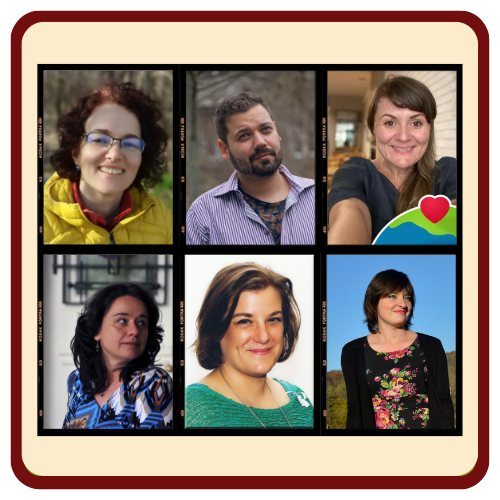
The members of the first two training groups of sociodrama in Hungary.
INTERSECTING SPACES: NAVIGATING INDIVIDUAL AND SOCIAL NARRATIVES THROUGH CRITICAL PSYCHODRAMA (PRESENTATION)
TOOLS OF INSIGHT: ENHANCING PSYCHODRAMATIC PRACTICE THROUGH A CRITICAL LENS (WORKSHOP)
PRESENTERS: DR. KRISZTINA BORSFAY – GÁBOR CSUVIK – DR. JUDIT GYŐRFY – MÁTYÁS HARTYÁNDI
TOOLS OF INSIGHT: ENHANCING PSYCHODRAMATIC PRACTICE THROUGH A CRITICAL LENS (WORKSHOP)
DATE AND TIME: 27th of June, Thursday 10:00-13:00
CONFERENCE TOPIC: Sociodrama and different social groups – the strenghts of communities
TYPE: Presentation and workshop
ROOM:
NUMBER OF PARTICIPANTS:
TAGS: Different Social Groups, June27 Morning
ABSTRACT:
Intersecting spaces: navigating individual and social narratives through critical psychodrama (Presentation)
The critical psychology approach takes social factors and social issues into consideration among the causes of psychological phenomena. During the presentation, we aim to look at the individual themes and group processes appearing in psychodramatic scenes, and also their connection to sociodrama, from a critical psychodrama perspective.
Is it among the tasks of the psychodrama leader to make participants of the psychodrama group think about and reflect on discriminative social systems and power inequalities that affect them? Does the thematization of social embeddedness have relevancy when individual themes and problems arise on the stage of psychodrama, and if so, in which way? What can psychodrama and sociodrama learn from each other? What is the result if both the individual and the social point of view appear in the same psychodramatic space?
In our opinion, these are exciting and timely professional questions. Critical psychodrama examines the processes appearing in the space of psychodrama not only at the level of the individual but embedded in a broader social context, using a systematic approach. Basically, individual problems are not merely manifestations of blockages, role deficits, and self-limiting beliefs in the protagonist’s mind, but instead systems created and maintained by several actors and factors. As a result, it can easily happen that the protagonist’s attempt to put their new kind of emotional knowledge experienced on the psychodramatic stage into practice, quickly collides with social expectations and role pressures, thereby making the long-term integration of the new pattern difficult, or even downright impossible.
What can we do as psychodrama leaders? During the presentation, we are looking for theoretical and methodological answers to the above questions and scenarios. We present the main principles of critical psychodrama and introduce interested parties to the dilemmas that a psychodrama leader working with a critical approach encounters.
Tools of insight: enhancing psychodramatic practice through a critical lens (Workshop)
Following the presentation addressing the foundations and theoretical background of critical psychodrama, the workshop will showcase and explore several practical tools of the approach. The speakers aim to expand the psychodrama toolkit with methods, techniques, and procedures that consider individual experiences and the encompassing social environment in their full complexity, thereby opening up new aspects to the members of a given psychodrama group. Throughout the workshop, we aspire to showcase these methods and techniques to the participants, with particular attention to comparisons with sociodrama.
The focus is on applying techniques within a psychodramatic context, enabling group members to develop new, system-conscious interpretations and coping mechanisms and to gain awareness of the social embeddedness of their social roles and identities. In this short method demonstration, together with the workshop participants, we will explore the possibilities of the brought situations and what the critical approach can offer to deal with them.
The goal of critical psychodrama is, on one hand, to establish realistic expectations among group members regarding the nature and process of change and, on the other hand, to explore how individual recognitions can be durably implemented into practice, for example, through building alliances and exposing the weak points of the hidden social structure shaping our lives.
ABOUT THE PRESENTERS:

The presenters are members of the Critical Psychodrama Methodology Group in the Hungarian Psychodrama Association.
Dr.Krisztina Borsfay – psychodrama leader, psychologist, assistant professor
Gábor Csuvik – psychodrama and sociodrama assistant, social worker, master in intercultural psychology and education
Dr. Judit Győrfy – mental health counselor, women’s rights activist, lawyer
Mátyás Hartyándi – psychodrama assistant (in training), researcher
GROUPS, CONNECTORS OR DIVIDERS?
PRESENTERS: MALI RAZ – AYALA KRIZEL
DATE AND TIME: 27th of June, Thursday 14:00-16:30
CONFERENCE TOPIC: Sociodrama and different social groups – the strenghts of communities
TYPE: Workshop
ROOM:
NUMBER OF PARTICIPANTS: 20
TAGS: Different Social Groups, June27 Afternoon
ABSTRACT:
As therapists and group leaders, we usually amplify the advantages of being a part of a group. That is because we know the profound processes that groups allow an individual and a community to go through. A group is considered a master tool for achieving a desired change.
But what happens between different groups? Europe and the entire world are experiencing an enormous wave of clashes between groups on political, religious and racial grounds. The impact of these clashes is experienced like a tsunami that everyone can feel in their own country or community.
In this workshop, we will bring forth this concept that groups can bring us together but also tear us apart. We will bring forth different kinds of encounters and role reversals to allow the participants to experience themselves in positions that constantly change as does our reality these days.
By using sociometric tools such as spectrogram and sociogram, we will try to follow J.L Moreno’s footsteps in order to actively understand how we can harness the power of groups in orders to make good, to connect rather than divide. In order to do so we will need to arouse spontaneity and creativity because as Moreno says, ‘the problem is how to elicit from every man his maximum spontaneous participation so that we can lay bare the fundamental structures between persons and between persons and objects’ (Moreno, J.L, Sociometry 1, pp 206, 1937).
During this session participants will experience firsthand the warm embrace that groups can give, as well as the dangers they can cause to an individual and a community.
Hopefully, after the workshop, participants will be able to better identify harmful processes between groups and, as group leaders and therapists, allow a dialogue that connects between different individuals and societies.
ABOUT THE PRESENTERS:
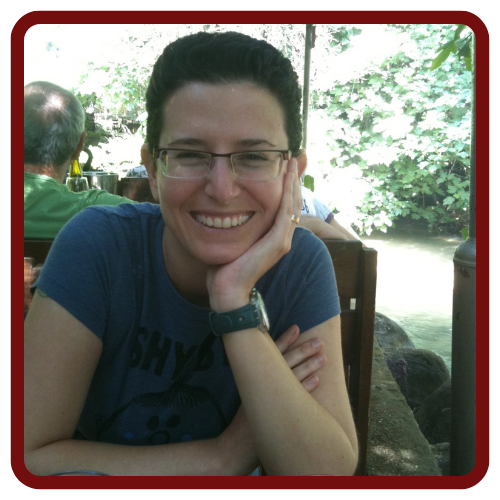
Ayala Krizel
Psychodramatist M.A Haifa University
Jungian psychotherapist
Kfar Shaul psychiatric hospital, Amitim- rehabilitation for mental health patients in the community, private practice for groups and individual patients.
Supervisor and Trainer – Haifa University, Haifa, Israel.
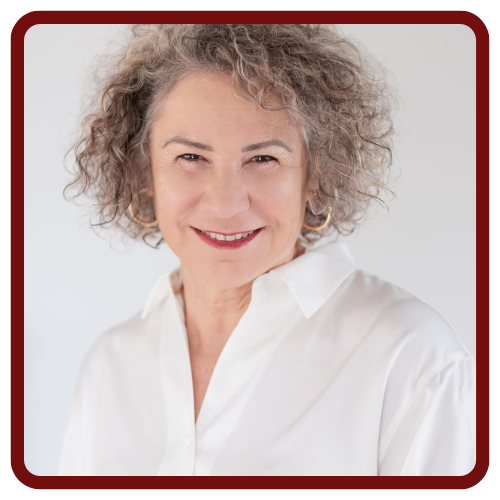
Mali Raz
M.A. Haifa university
Jungian Therapist
Psychodrama Therapist – Youth ward, psychiatric hospital “Maale Hacarmel”, Haifa, and in Israeli-Arab schools in Jiser Azarka and Furadis.
Specialist in treatment of stress situations.
Supervisor and Trainer – Haifa University, Haifa, Israel.
INCLUSION, ACCEPTANCE
BIBLIODRAMATIC SOCIODRAMA
PRESENTERS: TÜNDE MAJSAI-HIDEG – KATALIN HEGYES
BIBLIODRAMATIC SOCIODRAMA
DATE AND TIME: 27th of June, Thursday 14:00-16:30
CONFERENCE TOPIC: Sociodrama and different social groups – the strenghts of communities
TYPE: Workshop
ROOM:
NUMBER OF PARTICIPANTS: 15
TAGS: Different Social Groups, June27 Afternoon
ABSTRACT:
For those escaping hunger, poverty, and persecution, and for others facing various disadvantages, the fundamental question arises: do we include and accept them? Do we open ourselves and our assets to them? Are we willing to understand them and their situation? Do we see the values and dignity of others as our own? “For I was hungry and you gave me something to eat. I was a stranger and you invited me in.”
As a result of the scriptural understanding of man’s existence in the world, bibliodrama, similar to sociodrama, is an important medium for aspirations to transcend the vicissitudes of current life situations. In the workshop we will try to show how a biblical story can become an inspiration for solving problems on a social level by understanding the human experience told to help the community to better mobilize its resources and to take responsibility.
Our starting story is a fascinating intercultural-interethnic event: „In the days when the judges ruled, there was a famine in the land. So a man from Bethlehem in Judah, together with his wife and two sons, went to live for a while in the country of Moab {…} They married Moabite women.”
In the first part of our workshop, we will experience and reflect on the social context of the narrative. Afterward, we will together create the reality of the initial situation here and now. In the meantime, we will pay particular attention to the common ground in the interpersonal relations of the moment, to aspects of understanding, solidarity, inclusion, and subsidiarity. We will attempt to experience the joys and challenges of an ecumenical and intercultural attitude, and how and to what extent scriptural truth can be made relevant to us: “So in everything, do to others what you would have them do to you, for this sums up the Law and the Prophets.” (Matthew 7, 12)
ABOUT THE PRESENTERS:
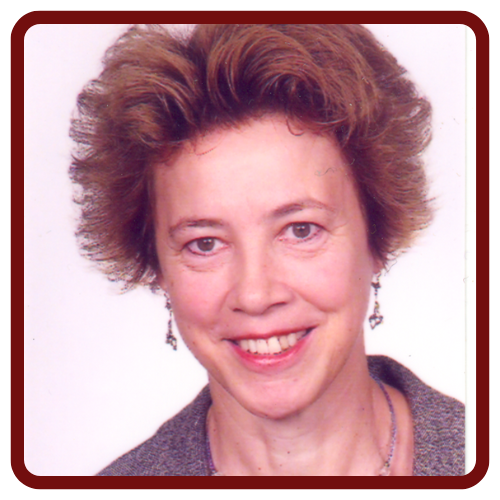
Tünde Majsai-Hideg is a Reformed theologian-pastor, mental health professional, clinical pastoral care, religion teacher, family consultant, supervisor, psychodrama trainer, child psychodrama trainer and supervisor, bibliodrama supervisor.
She attaches particular importance to building small communities, fostering acceptance of differences and freedom from prejudice.
She is a committed advocate of interdisciplinary, intercultural and interfaith dialogue.

Katalin Hegyes is a trainer, communication expert, a biblio- and psychodrama teacher, working with sociodrama in social institutions and mainly in school classrooms.
She taught refugees in Germany, and is a member of several professional groups and the Hegyvidék Green Circle, which is active in promoting environmental awareness.
She believes in the power of diversity and acceptance.
IN THE SHOES OF THE DISPLACED
PRESENTER: PEN FITZGERALD
DATE AND TIME: 28th of June, Friday 14:00-16:30
CONFERENCE TOPIC: Sociodrama and different social groups – the strenghts of communities
TYPE: Workshop
ROOM:
NUMBER OF PARTICIPANTS: 12
TAGS: Different Social Groups, June28 Afternoon
ABSTRACT:
This workshop will explore the experience of those who have been involuntarily displaced from their homes by war, famine and other acts of violence and discrimination.
Participants will be helped through Sociodrama, action based and reflective exercises to connect with and explore in action others experiences of displacement and loss of control over their own lives.
The three levels of Sociodrama; Sharing from role, Personal Sharing and Social Learning will provide a container and an opportunity for integration of learning.
Aims and Objectives: To increase our understanding and empathy with those who are displaced. We also hope that participants will be inspired to create connections with those displaced and on the edges of their communities.
Learning objectives: At the end of the workshop participants will have:
- A greater understanding and empathy with those who are displaced in their communities.
- Expanded their ability to step into another’s shoes and see the world from their perspective.
- Develop a vision of how to reach out or advocate for change in their communities
Bibliography
Nujeen: One Girls Incredible Journey from war torn Syria in a Wheelchair
Nujeen Mustafa with Christina Lamb
My Fourth Time We Drowned
Sally Hayden
ABOUT THE PRESENTER:
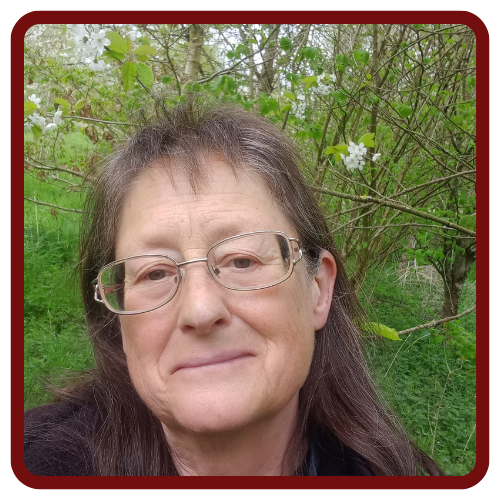
Pen Fitzgerald qualified as a psychodrama psychotherapist in 1996 and has been running groups incorporating Psychodrama and Sociodrama in many different settings since then. Until the end of 2021 she also worked as a social worker with young people coming out of the care system in Ireland focusing particularly on immigrant children displaced from their country and also from their family of origin. Recently she has been involved in the Community Sponsorship Programme welcoming a Syrian refugee family to the local town and developed this workshop to help her group and community understand the refugee experience.
CLAIMING THE GOLD IN THE GOLDEN YEARS
PRESENTER: DEBORAH S. SHADDY
DATE AND TIME: 28th of June, Friday 14:00-16:30
CONFERENCE TOPIC: Sociodrama and different social groups – the strenghts of communities
TYPE: Workshop
ROOM:
NUMBER OF PARTICIPANTS: 25
TAGS: Different Social Groups, June28 Afternoon
ABSTRACT:
Finding the “Gold” in the “Golden Year”: Maximizing the creativity for communities throughout the life-span
As we age, roles shift, change, and all too often, contract. Yet, communities thrive and reach their full potential when all participants are able to participate fully within the limits of their abilities. When embraced, age can provide space to access powerful new energies and tune into archetypes of compassion, outrage, power and new layers of wisdom. The gift that years and experience offer is the potential for increased clarity and voice. Moreno’s methodologies of psychodrama and sociodrama provide avenues to expand roles and find new ones. In this workshop we will provide tools to help ourselves and those we work with identify archetypes that will help them step fully and confidently into the fullness of their most authentic selves and enrich their own lives and that of the communities with which they interact.
Learning Objectives. After attending this workshop, participants will be able to:
- Identify archetypes useful for ages 50 and beyond
- Describe two psychodramatic and sociodramatic techniques useful in reinvigorating life after 50
ABOUT THE PRESENTER:
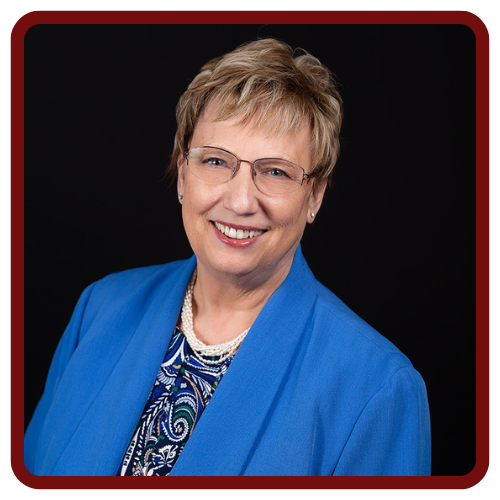
Deborah Shaddy, MS, LMHP, LCPC, TEP has over 25 years of experience as a psychotherapist, educator, consultant, and in program development. She holds a Master’s degree from Creighton University in Omaha, NE. Deborah has a long-held passion for the power of experiential methods, developed through psychodrama and Virginia Satir’s Process Community. She is certified as a trainer, educator and practitioner of psychodrama, sociometry and group psychotherapy by the American Board of Examiners in Psychodrama and as an Experiential Arts Facilitator by Salve Regina University in Newport, Rhode Island. She also has been influenced by post-graduate Jungian and object relations studies.
Deborah is known as a warm and skilled practitioner, facilitator and educator. She has brought her skills to individuals, divorcing families, Fortune 500 companies, colleges and universities and religious communities. Her primary area of expertise is in healing trauma and she has a special interest in transforming relationships with self, with families and others, and within organizations and communities. She utilizes her psychodrama and sociometry skills in her clinical practice, in the development and facilitation of spirituality retreats, and in consultations to corporate, academic, and professional groups.
Deborah is the founder of the Sophia Center, a counseling, consultation and training practice. She is senior faculty member of the Hudson Valley Psychodrama Institute in Highland, NY and presents at local and national conferences. Deborah was an elected member of the Executive Council of the American Society of Group Psychotherapy and Psychodrama (ASGPP) where she chaired the Continuing Education Committee.
THE USE OF SOCIODRAMA IN A PARTICIPATORY, MULTIMODAL, EXPERIENTIAL STUDY OF SOCIAL ISSUES
PRESENTERS: PHILIA ISSARI – GEORGIOS CHANIOTIS – KATERINA LIOLIOU
DATE AND TIME: 29th of June, Saturday 9:00-9:50
CONFERENCE TOPIC: Sociodrama and different social groups – the strenghts of communities
TYPE: Presentation
ROOM:
NUMBER OF PARTICIPANTS: Any
TAGS: Different Social Groups, June29 Morning
ABSTRACT:
This presentation describes the way sociodrama was used in the context of an innovative transdisciplinary project entitled “Transition to 8: Bridging social issues, tech and contemporary art”, that applied multimodal methods for studying the impact of social issues on citizens and bridging them with technology and contemporary art.
Along with other participatory arts-based approaches, such as the use of social theatre (Saldaña, 2011), sociodrama has developed in recent years from an innovative method of qualitative analysis for social issues into a major transformative intervention for community development (Conrad & Sinner, 2015). In this study, we used sociodrama as an approach that is both inherently embodied and socially minded. Data generation took place in the context of six sociodrama sessions that is, two sessions per subject (environment, labour, migration), in which Eleusis residents were called upon to enact their perspectives, concerns and experiences regarding living in Eleusis on topics that were identified as central concerns for the local community. Each session lasted approximately one-and-a-half hours. The sessions were facilitated by two experienced sociodramatists, members of the research team, who introduced the rationale, the process and the activities of the sessions. In line with the researchers’ interest in multimodal research, the sessions were video- and audio-recorded. Biometric data via wearable sensor, resembling that of smart watches, measuring physiological signals affiliated with emotional arousal were obtained from the participants who felt comfortable wearing the devices.
Data from the sessions were provided to artists, in the form of sound, visual, biometric and verbal elements, which constitute sources of inspiration for their artistic productions. Examples from the research findings will be presented in a multimodal way.
ABOUT THE PRESENTERS:
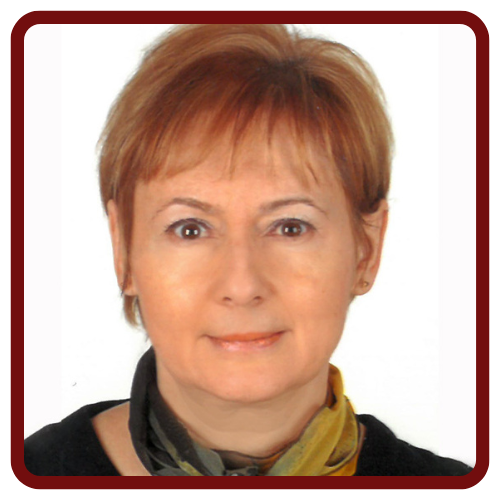
Philia Issari is Associate Professor of Counseling Psychology and Founding Director of the Centre for Qualitative Research in Psychology and Psychosocial Well-being at the Department of Psychology, National and Kapodistrian University of Athens
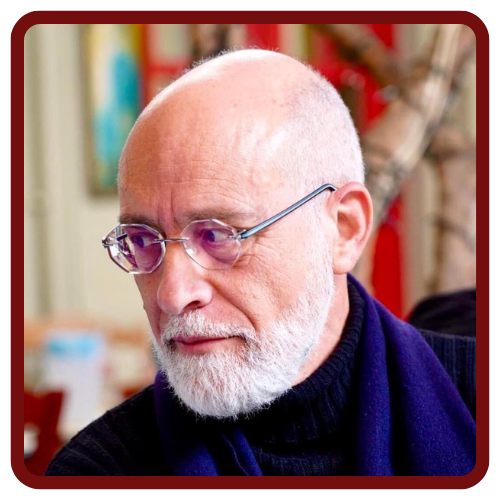
Georgios CHANIOTIS: Sociodramatist-Psychodramatist,
Member of the International Committee on Advisors of the International Sociodrama Conference, Organizer of the 5th International Sociodrama Conference – Greece.

Katerina Lioliou: educator and psychodramatist.
Since 2009 she has coordinated training seminars for primary school teachers, psychodrama groups (Health Centre of the Municipality of Agioi Anargyroi etc.) and has taught in educational programmes (Roma training programme, addiction prevention programmes etc.). Her project “Psychodrama at school” was based on experiential work with primary school children during her employment in public education.
FINDING OUR TRIBE!
USING SOCIOMETRY, CREATIVE ARTS AND SOCIODRAMA TO EXPERIENCE BELONGING
PRESENTERS: JACOMIEN ILBRINK-DE VISSER – VALERIE MONTI HOLLAND
USING SOCIOMETRY, CREATIVE ARTS AND SOCIODRAMA TO EXPERIENCE BELONGING
DATE AND TIME: 29th of June, Saturday 14:00-16:30
CONFERENCE TOPIC: Sociodrama and different social groups – the strenghts of communities
TYPE: Workshop
ROOM:
NUMBER OF PARTICIPANTS: 20
TAGS: Different Social Groups, June29 Afternoon
ABSTRACT:
In this workshop we will go from a personal primal drawing to reconnect through collective creation in search of our tribe, a place to belong, a holding frame where we can be ourselves and be part of a community.
What can we learn from our ancient roots? What is there that we can take into our lives today? What is our personal responsibility versus our personal agency amongst the wider society? How can we steer ourselves to further the greater good and strengthen community?
We will be exploring the power of play to connect our personal communal histories that form groups and society in the hope that we can co-create a better world.
After this session participants will:
- Have a better understanding through their experience of combining the creative arts with sociometry and sociodrama.
- Explore how we can use personal agency for the greater collective
- Remember the importance of play
ABOUT THE PRESENTERS:
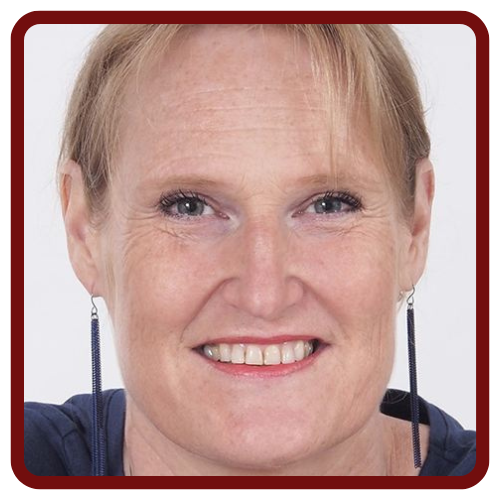
Jacomien Ilbrink – de Visser, CP, creative arts therapist, Psychodrama CP, Trainer Psychodrama, chair Psychodrama Association of Europe e.V. from the Netherlands
Jacomien started her studies in creative arts therapies, mixed media, 1999 at the New School in New York and 2001 additionally psychodrama & sociodrama in New York. in 2005 she came back to the Netherlands and started teaching deep sociometry in 2012. She works as a trainer/coach.
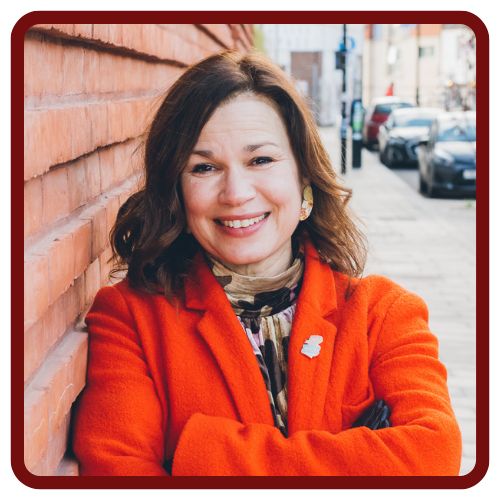
Valerie Monti Holland, MA, Sociodrama Trainer & Executive Committee Member of the BPA, from the UK
Valerie is a sociodramatist working as a facilitator and coach across all sectors and throughout the world. She also chairs the Equality and Diversity in Action committee and is an External Relations rep for the BPA.
IN SYSTEMS WE LIVE… THE SYSTEMS WE LIVE IN… THE ART OF BEING HUMAN
PRESENTER: CISSY ROCK
DATE AND TIME: 29th of June, Saturday 14:00-16:30
CONFERENCE TOPIC: Sociodrama and different social groups – the strenghts of communities
TYPE: Workshop
ROOM:
NUMBER OF PARTICIPANTS: 50
TAGS: Different Social Groups, June29 Afternoon
ABSTRACT:
Appreciating another’s point of view, recognising the power of the group, loving and valuing someone for who they are – I call the art of being human. However this is easier said than done as we all live in systems that have patterns of functioning that can work against us achieving this.
This workshop will be conducted as a sociodrama working with Moreno’s vision of a “social” or “creative” revolution in which people are able to respond in new and novel ways, and to reverse roles with other people.
Together we will explore a particular system, uncover the social forces at play, identify interconnections and interdependencies and distinguish what works against or towards participants living in the system to practice the art of being human.
This session will enable participants to appreciate what is possible when all players in the system are engaged in a group process.
ABOUT THE PRESENTER:
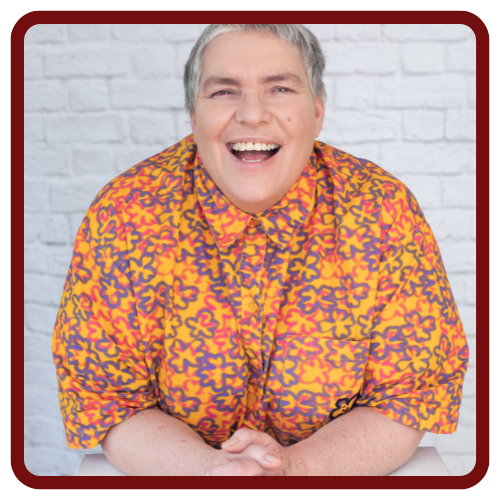
Cissy Rock is a sociodramatist who is fired up by the power of relating to each other. Through her collective Community Think she engages in campaigns, place-based community development, large-scale community facilitation processes, workshops and supervision. Cissy loves working with the group to make the invisible, visible. She strongly believes the expertise needed lies within the group. With a huge heart, warm sense of humour and love of donuts and coffee Cissy produces relatable and participatory experiences.
ENVISIONING THE JOURNEY AHEAD: SURPLUS REALITY APPLICATIONS IN SOCIODRAMA FOR A HEALED AND UNITED GLOBAL COMMUNITY
PRESENTERS: DANIELA SIMMONS-BOJANA GLUSAC DRASLA
DATE AND TIME: 29th of June, Saturday 14:00-16:30
CONFERENCE TOPIC: Sociodrama and different social groups – the strenghts of communities
TYPE: Large group
ROOM:
NUMBER OF PARTICIPANTS: 100
TAGS: Different Social Groups, June29 Afternoon
ABSTRACT:
A comprehensive perspective on social cultures can foster innovative approaches to exploring and reorganizing collective roles. The enchantment of surplus reality resides in the utilization of imagination and play in this pursuit; it enables us to explore and manifest our needs, and goals on how to live and coexist in the collective realm of the future. From the philosophy of Dr. Moreno, we know that through our creative genius, we cultivate new ways of being, co-creating, and connecting. Surplus reality in sociodrama addresses our goal to explore collective creative potential by bringing the future into the present and expressing hopes, readiness, and willingness for change, creating a better world for all.
This workshop will explore pathways on how to turn our visions for the future into present actions and pursuits. Dr. Moreno left us a message that if we can imagine something, we can pursue and accomplish it, reaching out to new “invisible dimensions’ for connection, inclusion, and a collective future in a healed global society.
“Surplus Reality is … an enrichment of reality by the investment and extensive use of imagination” (Moreno, J.L. (1965). Therapeutic vehicles and the concept of surplus reality. Group Psychotherapy, 18, p. 211
The following learning objectives aim to provide participants with a rich and transformative experience in envisioning and realizing a healed and united global community through the applications of surplus reality in sociodrama. After attending this session, the participants will be able to:
- Recognize the concept of surplus reality and its utilization in sociodrama in exploring and manifesting needs, goals, and aspirations for collective living in the future.
- Describe the session’s goal of exploring collective creative potential by bringing future visions into the present, fostering hopes, readiness, and willingness for positive change.
- Define pathways and strategies to turn envisioned futures into tangible present actions and pursuits, in alignment with Dr. Moreno’s belief that imagination can be pursued and accomplished.
ABOUT THE PRESENTERS:
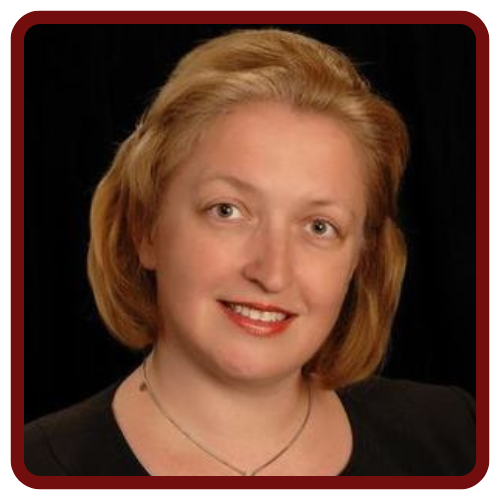
Daniela Simmons, PhD, TEP is international trainer & supervisor, the creator of the Tele’Drama method and the founder and director of the International Tele’Drama Institute which has already welcomed thousands of people, from 82+ countries. Dr. Simmons is the 2022 ASGPP recipient of the Innovator’s Award for the creation of Tele’Drama. She is the current President of the American Society in Group Psychotherapy and Psychodrama (ASGPP). Daniela Simmons’, professional experience, both in Europe and the US, is in educational, research, and consultancy work in the social sciences and mental health. She received training on the psychoanalysis of group relations in organizations at the Tavistock Institute of Human Relations, headquartered in London. She has been utilizing action methods sessions since 1995 in Europe and since 2005 in the United States.
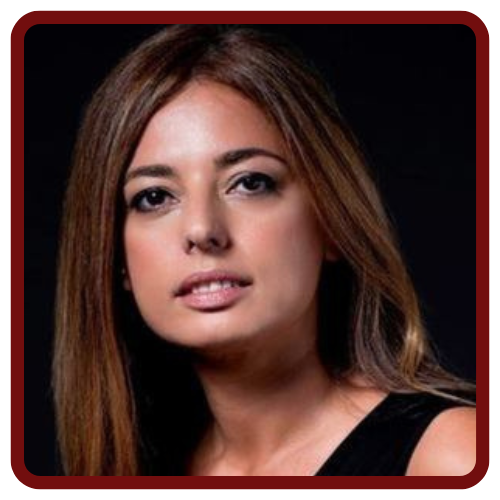
Bojana Glusac Draslar, Psychotherapist, Trainer, Supervisor, Educator. Bojana graduated in Special Education and Rehabilitation at Belgrade University. Upon fulfillment of required conditions in qualifications, experience and expertise, she received the ECP (European Certificate for Psychotherapy), and the title of educator in psychotherapy and supervisor. Her work is focused on Individual and group psychotherapy clients within a private clinic that she founded 1999., developing a new psychotherapeutic approach TP (Transpersonal Psychodrama), well-being programs, stress management and self-care, international leadership assessment, executive coaching, leadership development and team-building. She has written 3 books on Mindfulness and Well-being, as well as articles on psychotherapy and other people’s development approaches.
Online Sessions
EXPLORING POWER BALANCES AND CLIENT RELATIONSHIPS
IN SOCIODRAMATIC WORK
PRESENTER: AROLDO DE LARA CARDOSO JÚNIOR
IN SOCIODRAMATIC WORK
DATE AND TIME: 27th of June, Thursday 17:00-19:00 (Central European Time)
CONFERENCE TOPIC: Sociodrama and different social groups – the strenghts of communities
TYPE: Workshop
LOCATION: ZOOM
NUMBER OF PARTICIPANTS: 30
TAGS: June27 Online
ABSTRACT:
The social atom, created by Moreno in 1975, posits that individuals are shaped by their interactions, leading to the development of role theory. Moreno suggested that the social atom represents the smallest unit of society, comprised of people essential to an individual’s life. Literature examining differences includes Butler (2011), who discusses gender performances, and Hooks (2000), who introduces the concept of intersectionality. It could be argued that social tensions affecting groups identified with different categories may lead to violent acts, such as racism and homophobia, often perpetrated by those who identify one-sidedly with these social struggles. In contrast, the Morenian approach enables groups to understand each other through their differences as well as their similarities. Thus, literature on social markers serves as a contemporary tool that can complement and enhance psychodramatic work. This online workshop aims to explore client relationships through the lens of social categories like gender, race, and sexual orientation, drawing attention to how these differences influence such relationships. Participants will reflect on their own and their clients’ experiences regarding sociocultural and historical differences.
Educational Objectives:
- To make the social differences between psychodramatists and their clients more visible and encourage curiosity about these differences.
- To reflect on client relationships concerning social markers and differences, acknowledging their impact on these relationships.
- To share strategies for addressing differences in psychodramatic work.
Method:
Participants will create social atoms for clients they currently work with, whether in private practice, institutions, or other settings. After developing these social atoms, they will categorize their clients by social identities (e.g., transgender, bisexual, non-monogamous), using different colors to represent each category. The expected outcome is a social atom that visually represents the clients’ identities. Participants will then be invited to consider which markers might identify their clients (e.g., skin color, gender expression, relationship styles) and how their own experiences with these markers may influence their client relationships. This reflection will be conducted privately. Afterward, participants will share their thoughts with the group to the extent that they feel comfortable. The discussion will include the impact of power relations on their work and strategies for managing differences and power imbalances.
BIBLIOGRAPHIC REFERENCES
Butler, J. (2011). Gender Trouble: Feminism and the Subversion of Identity. Estados Unidos: Taylor & Francis. Hooks, B. (2000). Feminist Theory: From Margin to Center. Reino Unido: Pluto Press. Moreno, J. L. (1946). Psychodrama. Estados Unidos: Beacon House.
ABOUT THE PRESENTER:
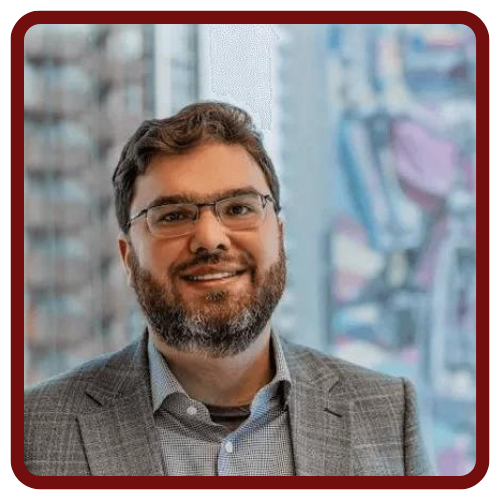
Aroldo de Lara Cardoso Jr, based in São Paulo, Brazil, is a psychologist and psychodramatist holding a master’s degree in clinical psychology.
LIVING IN THE MOMENT WITH DIGNITY AND CARE FOR PEOPLE LIVING WITH DEMENTIA:
SOCIODRAMA EXPLORATION
PRESENTER: BETTY GARRISON
SOCIODRAMA EXPLORATION
DATE AND TIME: 28th of June, Friday 17:00-19:00 (Central European Time)
CONFERENCE TOPIC: Sociodrama and different social groups – the strenghts of communities
TYPE: Workshop
LOCATION: ZOOM
NUMBER OF PARTICIPANTS: Any
TAGS: June28 Online
ABSTRACT:
The presenter selected this topic to highlight the social roles of individuals living with Alzheimer’s, along with the challenges faced by both formal and informal caregivers, and the broader implications for society. This decision is rooted in the presenter’s expertise and extensive experience in the field. Dr. Daniela Simmons, a sociodramatist, gerontologist, and educator, emphasizes, “Happy Aging means living with dignity, love, and care. Old Age should be as enjoyable as any other season of human life. This is a critical issue that demands attention from caregivers, professionals, and policymakers alike. We must envision how we want to experience our later years and ensure the same quality of life for those currently in old age.” With this perspective, the workshop aims to explore and understand the profound impact of dementia and identify effective ways to support those affected by the condition, their families, and caregivers, as well as society at large. The presentation will incorporate both didactic and experiential elements. Learning Objectives:
Participants will gain insights into the profound effects of dementia on individuals, their families, and caregivers. The workshop will explore the social roles of those living with Alzheimer’s and the challenges they face, emphasizing the importance of dignified, loving, and caring approaches to aging.
Attendees will learn effective ways to support those affected by dementia, focusing on enhancing the quality of life for the elderly in their later years. Strategies will address the needs of both formal and informal caregivers and consider the broader implications for society.
Bibliographic references:
Simmons, D., (2011) Sustainable Living In Long-term Care: For People with Dementia/Alzheimer’s, Educational Gerontology, Publisher Routledge
Simmons, D., (2023) Models for Individuals with dementia: Beyond the Special Care Framework; Long Term Care Models and Culture Change Movement in U.S., Book in Chineese & English
ABOUT THE PRESENTER:
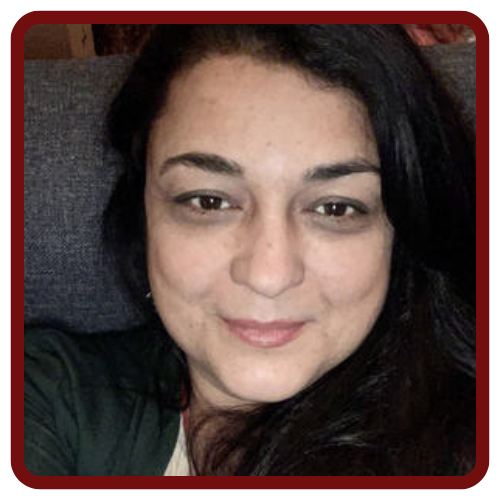
Betty G. Garrison is an actor, writer, director, business owner, and psychotherapist with concentrations in psychodrama, drama therapy, play therapy, and other creative modalities. Betty has earned three Master’s Degrees: Theatre Ed/Drama Therapy, Film/Social Reform, and Clinical Mental Health Counseling. She has over 30 years of experience using theatre arts and film to engage, inspire, educate, and heal children, adolescents, and adults. Betty participates in the Level 3 Tele’Drama Certification program and serves on the Tele’Drama International Leadership Team.
SOCIODRAMA IN THE TREATMENT OF EATING DISORDERS
PRESENTER: COLLEEN BARATKA
DATE AND TIME: 28th of June, Friday 17:00-19:00 (Central European Time)
CONFERENCE TOPIC: Sociodrama and different social groups – the strenghts of communities
TYPE: Workshop
LOCATION: ZOOM
NUMBER OF PARTICIPANTS: Any
TAGS: June28 Online
ABSTRACT:
Families and patients often struggle to see that eating disorders are not about weight or food. This sociodramatic technique was developed to use in large multifamily groups to help educate and give the families the emotional experience of an eating disorder and create a strategy for recovery from within. The sociodrama itself uses some body resistance to concretize the body struggle and we will be practicing together how to recreate a very physicalized sociodrama into a hybrid live/zoom space.
After this workshop participants will explain the importance of familial role reversal with the patient to stop the rescue pattern and help the client heal themselves.
After this workshop participants will be able to apply ‘fat’ and healing circles for working with body image issues.
ABOUT THE PRESENTER:
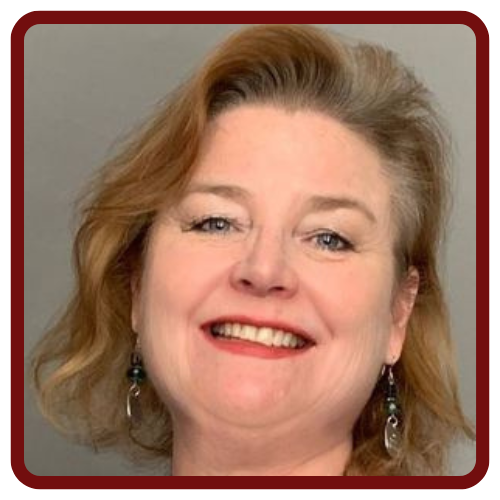
Colleen Baratka, MA TEP, CTP-2 , Fellow of the American Society of Group Psychotherapy and Psychodrama, recipient of the Collaborator’s and Hannah Weiner Awards has been in clinical practice over 30 years and developed psychodrama and trauma programs in various treatment programs. Colleen hasis a published on the topics of trauma and eating disorders and currently is in private practice where she specializes in trauma and co-current issues. She works with individuals, families, and groups in-person, virtually and via hybrid. Colleen uses Sociodrama and Psychodrama for education and healing interventions.
WE LIVE IN THE MIDST OF DIVERSITY.
HOW DO WE UNDERSTAND EACH OTHER WITH THOSE WHO ARE DIFFERENT?
PRESENTERS: DR. MONICA ZURETTI – DR. DEBORA MOGHILEVSKY DE PENNA – LIC FERNÁN RODRÍGUEZ CETRÁN
HOW DO WE UNDERSTAND EACH OTHER WITH THOSE WHO ARE DIFFERENT?
DATE AND TIME: 29th of June, Saturday 17:00-19:00 (Central European Time)
CONFERENCE TOPIC: Sociodrama and different social groups – the strenghts of communities
TYPE: Workshop
LOCATION: ZOOM
NUMBER OF PARTICIPANTS: Any
TAGS: June29 Online
ABSTRACT:
Sociopsychodrama as a Path to Encounter.
Rebirthing sociometric networks in our present world.
ABOUT THE PRESENTER:
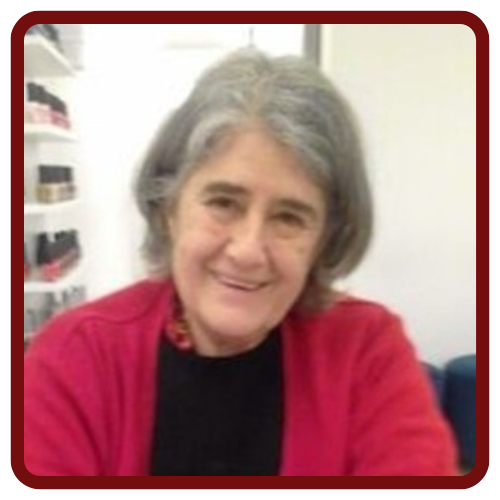
Mónica Zuretti, MD Universidad de Bs. As. Director de Pyichodrama Trained by J.L. Moreno and Zerka T. Moreno 1969, 1970. Director of the Centro de Psicodrama y Sociodrama Zerka Moreno. Profesor de Psicodrama as a Metodo Psicoterapeutico. Programa de Actualización Postgrado, Facultad de Psicología, Universidad de Bs. As. Author of El Hombre en los Grupos, Sociopsicodrama Lumen ed. 1995, different articles.
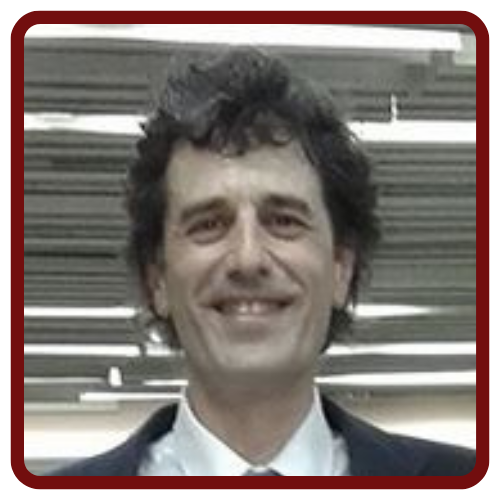
Lic Fernán Rodríguez Cetrán, Licenciatura en Folklore Mención Tango Universidad de las Artes, Buenos Aires Argentina. Psychodramatist from Centro Zerka Moreno. Paintor and Sculpturer, Creator of the whales cards 2008 , Tango and folklore dancer. Many of his art productions are exposed around the world: Buenos Aires, Argentina; Luca, Italy; Trondhein, Norway, among others.

Débora Moghilevsky de Penna, Doctor in psychology from the University of Bs. As. (Thesis on “the Use of the Stage Space of Psychodrama in Argentina”, 2019). Psychodramatist trained by Monica Zuretti, Zerka Moreno, Shirley Barclay (1986-1992). Co-founder of the Zerka T. Moreno Center (1992). Currently Teacher of “Psychodrama as a Psychotherapeutic Method” and subject professor “Psychological Space” (Update Program, Postgraduate, Faculty of Psychology, University of Bs As, 2021-2022).







